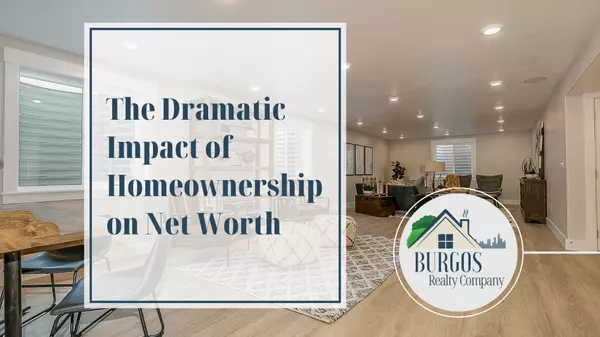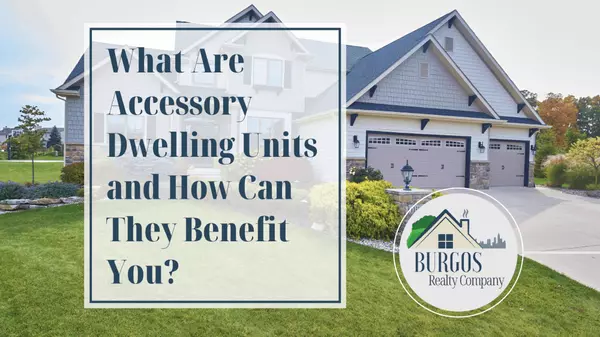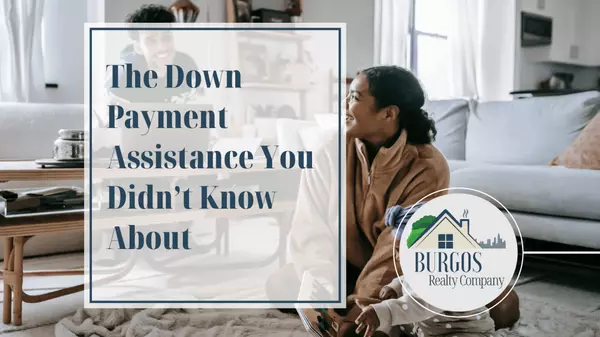

The Dramatic Impact of Homeownership on Net Worth
If you’re trying to decide whether to rent or buy a home this year, here’s a powerful insight that could give you the clarity and confidence you need to make your decision. Every three years, the Federal Reserve releases the Survey of Consumer Finances (SCF), which compares net worth for homeowners and renters. The latest report shows the average homeowner’s net worth is almost 40X greater than a renter’s (see graph below): One reason a wealth gap exists between renters and homeowners is because when you’re a homeowner, your equity grows as your home appreciates in value and you make your mortgage payment each month. When you own a home, your monthly mortgage payment acts like a form of forced savings, which eventually pays off when you decide to sell. As a renter, you’ll never see a financial return on the money you pay out in rent every month. Ksenia Potapov, Economist at First American, explains it like this: “Renters don’t capture the wealth generated by house price appreciation, nor do they benefit from the equity gains generated by monthly mortgage payments . . .” The Largest Part of Most Homeowner Net Worth Is Their Equity Home equity does more to build the average household’s wealth than anything else. According to data from First American and the Federal Reserve, this holds true across different income levels (see graph below): The green segment in each bar represents how much of a homeowner’s net worth comes from their home equity. Based on this data, it’s clear no matter what your income level is, owning a home can really boost your wealth. Nicole Bachaud, Senior Economist at Zillow, shares: “The biggest asset most people are ever going to own is a home. Homeownership is really that financial key that helps unlock stability and wealth preservation across generations.” If you’re ready to start building your net worth, the current real estate market offers several opportunities you should consider. For example, with mortgage rates trending lower lately, your purchasing power may be higher now than it has been in months. And, with more inventory coming to the market, there are more options for you to consider. A local real estate agent can walk you through the opportunities you have today and guide you through the process of finding your ideal home. Next Steps If you’re unsure about whether to rent or buy a home, keep in mind that owning a home can increase your overall wealth in the long run, no matter your income. To discover more about this and the many other benefits of homeownership, let’s connect.
Read More

What Are Accessory Dwelling Units and How Can They Benefit You?
Maybe you’re in the market for a home and are having a hard time finding the right one that fits your budget. Or perhaps you’re already a homeowner in need of extra income or a place for loved ones. Whether as a potential homebuyer or a homeowner with changing needs, accessory dwelling units, or ADUs for short, may be able to help you reach your goals. What Is an Accessory Dwelling Unit (ADU)? As AARP says: “An ADU is a small residence that shares a single-family lot with a larger, primary dwelling.” “An ADU is an independent, self-contained living space with a kitchen or kitchenette, bathroom and sleeping area.” “An ADU can be located within, attached to, or detached from the main residence. It can be created out of an existing structure (such as a garage) or built anew.” If you’re thinking about whether an ADU makes sense for you as a buyer or a homeowner, here’s some useful information and benefits that ADUs can provide. Keep in mind, that regulations for ADUs vary based on where you live, so lean on a local real estate professional for more information. The Benefits of ADUs Freddie Mac and the AARP identify some of the best features of ADUs for both buyers and homeowners: Living Close by, But Still Separate: ADUs allow loved ones to live together while having separate spaces. That means you can enjoy each other’s company and help each other out with things like childcare, but also have privacy when needed. If this appeals to you, you may want to consider buying a home with an ADU or adding an ADU onto your house. According to Freddie Mac: “Having an accessory dwelling unit on an existing property has become a popular way for homeowners to offer independent living space to family members.” Aging in Place: Similarly, ADUs allow older people to be close to loved ones who can help them if they need it as they age. It gives them the best of both worlds – independence and support from loved ones. For example, if your parents are getting older and you want them nearby, you may want to buy a home with an ADU or build one onto your existing house. Affordable To Build: Since ADUs are often on the smaller side, they’re typically less expensive to build than larger, standalone homes. Building one can also increase your property’s value. Generating Additional Income: If you own a home with an ADU or if you build an ADU on your land, it can help generate rental income you could use toward your own mortgage payments. It’s worth noting that because an ADU exists on a single-family lot as a secondary dwelling, it typically cannot be sold separately from the primary residence. But that’s changing in some states. Work with a professional to understand your options. These are a few of the reasons why many people who benefit from ADUs think they’re a good idea. As Scott Wild, SVP of Consulting at John Burns Research, says: “It’s gone from a small niche in the market to really a much more impactful part of new housing.” Next Steps Accessory dwelling units have some great advantages for buyers and homeowners alike. If you’re interested, reach out to one of our real estate professionals who can help you understand local codes and regulations for this type of housing and what’s available in your market.
Read More

Things To Consider If Your House Didn’t Sell
If your listing has expired and your house didn’t sell, it’s completely normal to feel a mix of frustration and disappointment. Understandably, you’re probably wondering what may have gone wrong. Here are three questions to think about as you figure out what to do next. Did You Limit Access to Your House? One of the biggest mistakes you can make when selling your house is restricting the days and times when potential buyers can tour it. Being flexible with your schedule is important, even though it might feel a bit stressful to drop everything and leave when buyers want to see it. After all, minimal access means minimal exposure to buyers. ShowingTime advises: “. . . do your best to be as flexible as possible when granting access to your house for showings.” Sometimes, the most determined buyers might come from far away. Since they’re traveling to see your house, they may not be able to change their plans easily if you only offer limited times for showings. So, try to make your house available as much as you can to accommodate them. It’s simple – if no one’s able to look at it, how will it sell? Did You Make Your House Stand Out? When you’re selling your house, the old saying matters: you never get a second chance to make a first impression. Putting in the work to make the exterior of your home look nice is just as important as how you stage it inside. Freshen up your landscaping to boost your home’s curb appeal so you can make an impact upfront. As an article from U.S. News says: “After all, if people drive by, but aren’t interested enough to walk through the front door, you’ll never sell your house.” But don’t let that impact stop at the front door. By removing personal items and reducing clutter inside, you give buyers more freedom to picture themselves in the home. Plus, a fresh coat of paint or thorough floor cleaning can work wonders in sprucing up the house for potential buyers. Did You Price Your House at Market Value? Setting the right price is key. While it might be tempting to push the price higher to maximize your profit, overpricing your house can actually turn off potential buyers and slow down the selling process. Forbes notes: “Pricing a home too high could lead to a slower sale or force the seller to drop their price.” If your house is priced higher than others like it, it may discourage buyers, resulting in increased time on the market. Pay attention to the feedback people give your agent during open houses and showings. If lots of people are saying the same thing, it might be a good idea to think about lowering the price. For all these insights and more, rely on a trusted real estate agent. A great agent will offer expert advice on relisting your house with effective strategies to get it sold. Next Steps It’s natural to feel disappointed when your listing has expired and your house didn’t sell. Let’s connect to determine what happened, and what changes you should make to get your house back on the market.
Read More
Categories
Recent Posts










